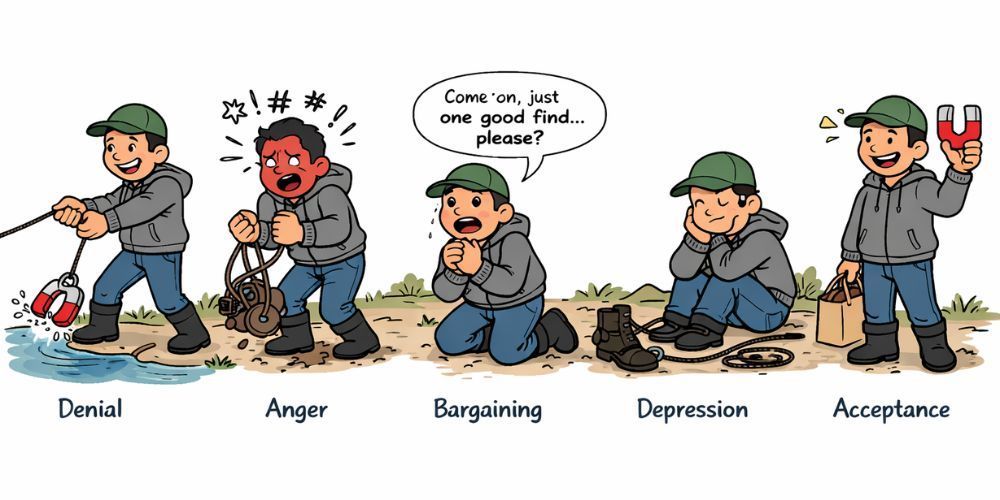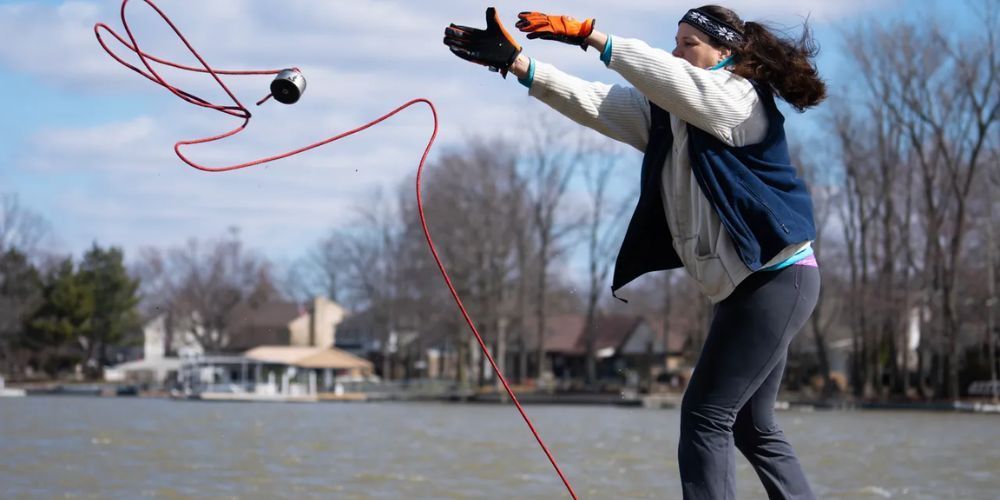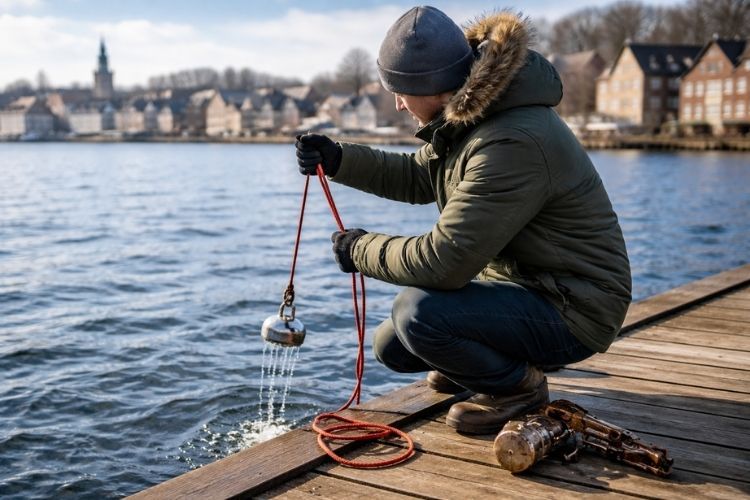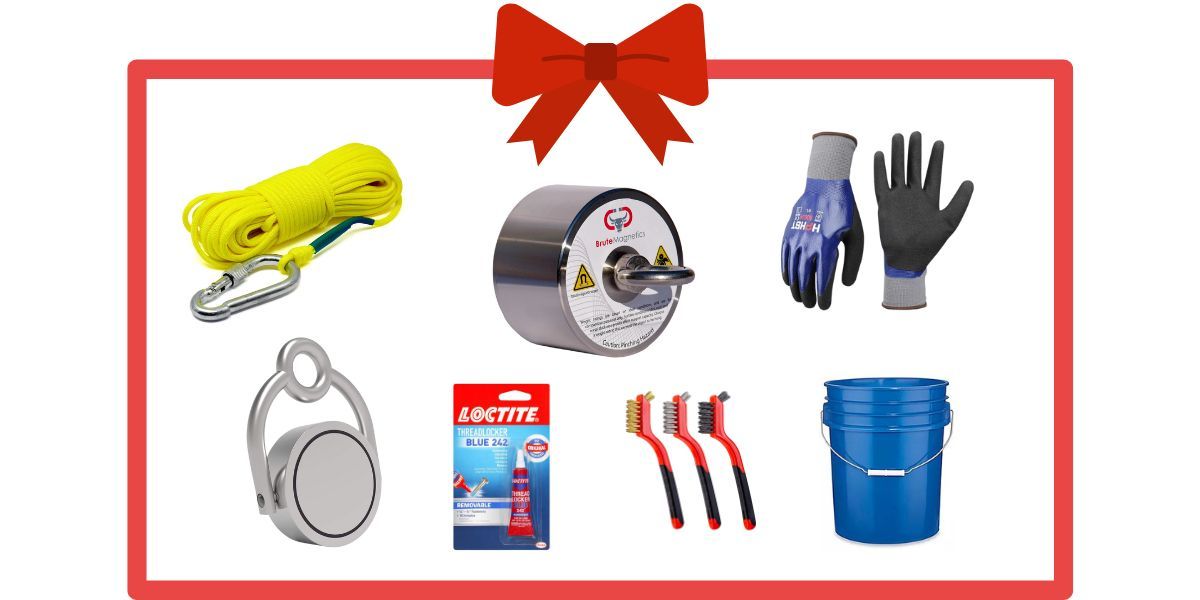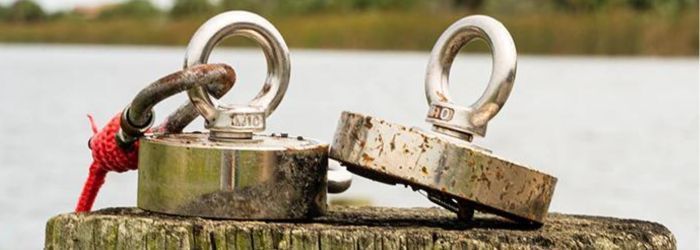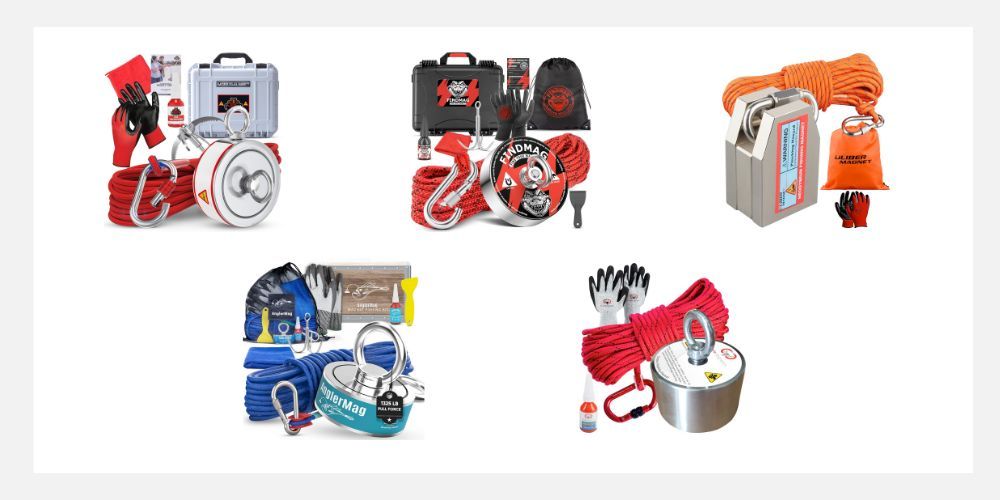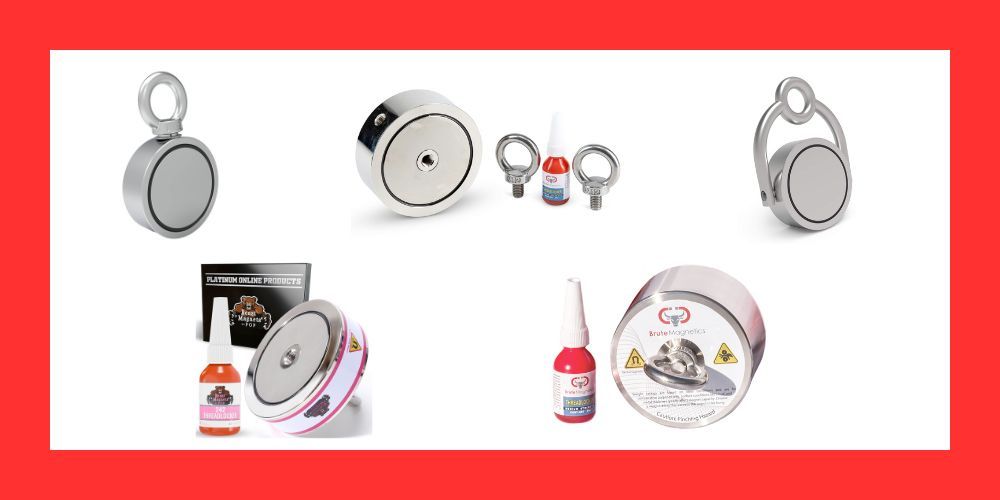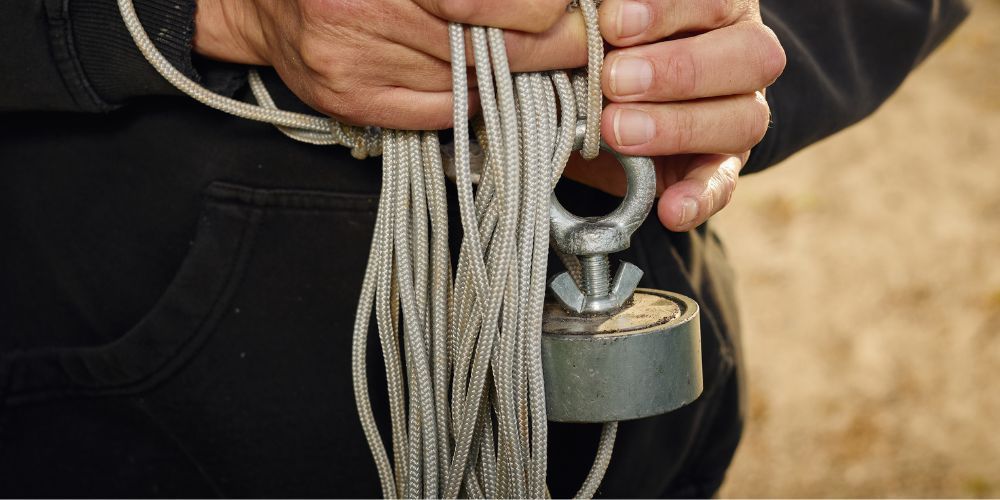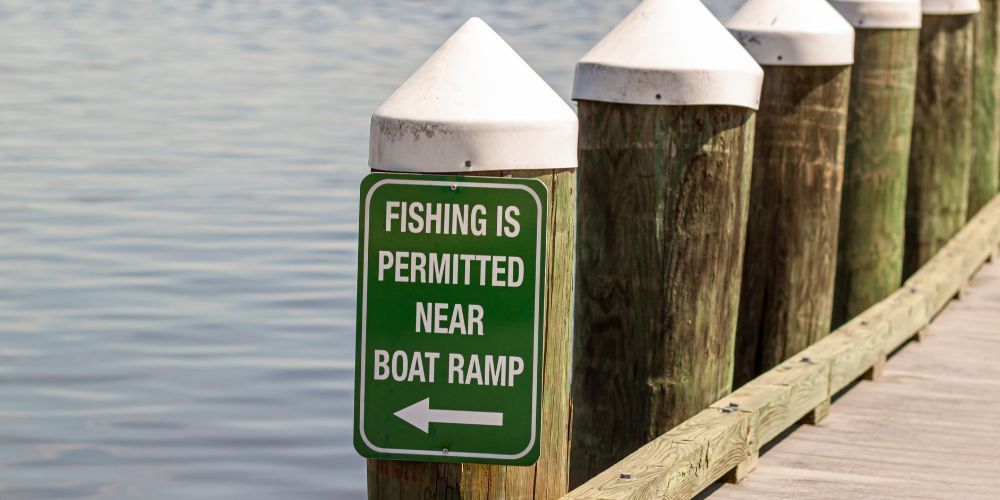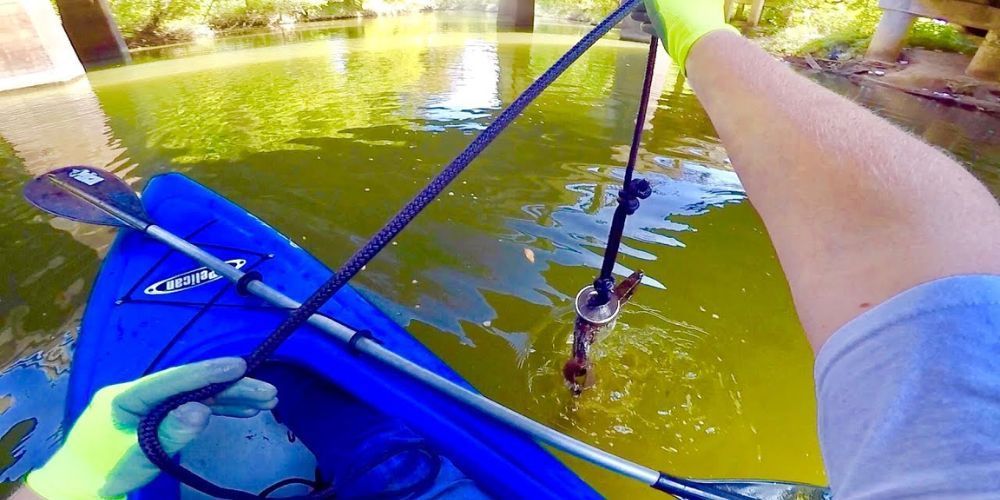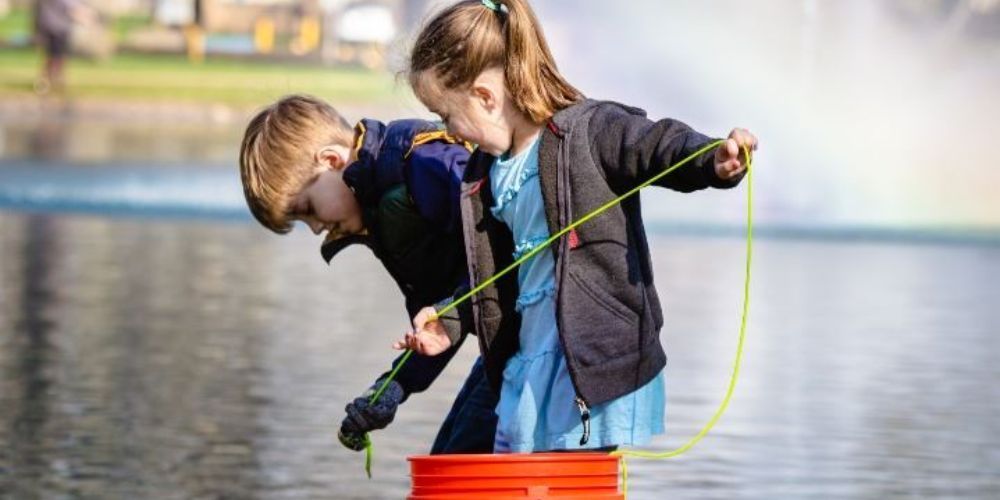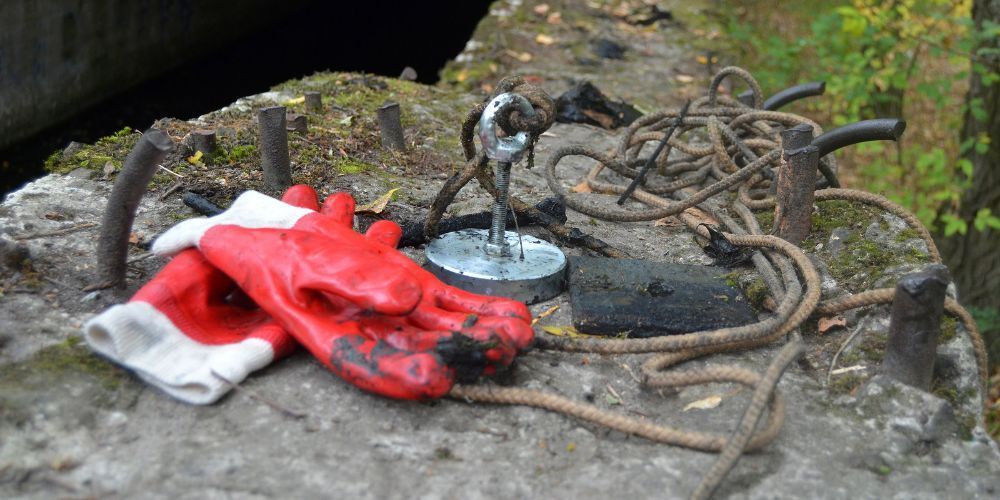Urban Magnet Fishing: Finding History in City Waterways
Ever wondered what treasures are hiding beneath the surface of your city's rivers, canals, and waterways? Urban magnet fishing combines the thrill of treasure hunting with the satisfaction of cleaning up our waterways - all while potentially uncovering fascinating historical artifacts right in your own backyard.

What Is Urban Magnet Fishing?
I'll never forget the first time I dropped my magnet into the murky waters beneath an old downtown bridge. The anticipation was electric - would I pull up trash, treasure, or something completely unexpected?
Urban magnet fishing is exactly what it sounds like - using powerful magnets attached to ropes to "fish" for metal objects in city waterways. But unlike traditional fishing, you're not catching living creatures - you're retrieving lost, discarded, or forgotten metallic items that might have historical significance.
Cities and their waterways have been centers of human activity for centuries. Rivers and canals served as transportation hubs, industrial corridors, and unfortunately, convenient places to discard unwanted items. This makes urban areas particularly promising for magnet fishing enthusiasts looking to uncover pieces of history.
Best Urban Spots for Magnet Fishing
Not all urban waterways are created equal when it comes to magnet fishing potential. Here are the prime locations that typically yield the most interesting finds:
1. Under Bridges and Overpasses
Bridges have always been popular spots for people to drop (or discard) items. The area directly beneath bridges often collects an amazing variety of metal objects over time. Old bridges with a long history are particularly promising, as they may have witnessed decades or even centuries of human activity.
2. Former Industrial Areas
Cities with industrial pasts offer incredible opportunities for urban magnet fishing. Former factory sites, mill areas, and industrial zones near water often contain remnants of their working past. Look for waterways that once supported shipping, manufacturing, or transportation hubs.
3. Historic Waterfront Districts
Harborfront areas, old docks, piers, and maritime districts have seen countless people come and go throughout history. These busy locations were centers of commerce where money changed hands and items were frequently dropped. Many cities have redeveloped these areas, but the water still holds secrets from their busier days.
4. Urban Canals
Canal networks served as the highways of the pre-automobile era. These narrow waterways often have less water movement than rivers, which means objects tend to stay where they fell rather than being washed away. Cities like Amsterdam, Venice, and parts of London have extensive canal systems that can be magnet fishing gold mines.
5. City Park Ponds and Lakes
Public parks with water features might seem too clean or maintained to hold interesting finds, but don't be fooled! Generations of park-goers have accidentally dropped coins, jewelry, and other metal items into these waters. Some urban parks date back a century or more, giving them plenty of time to accumulate interesting objects.
Historical Treasures You Might Find
Urban magnet fishing can uncover all sorts of fascinating items that tell stories about a city's past. While I can't guarantee you'll find treasure on your first outing, here are some common and uncommon discoveries made in city waterways:
Common Finds:
- Coins from various eras
- Keys and padlocks
- Tools and hardware
- Fishing equipment
- Bicycle parts
- Construction materials
Uncommon and Exciting Finds:
- Vintage signage and metalwork
- Antique bottles with metal caps
- Old toys and trinkets
- Historic tools and equipment
- Rail spikes and transportation artifacts
- Architectural elements from demolished buildings
Rare but Possible Treasures:
- Jewelry and watches
- Vintage firearm parts (always contact authorities if found)
- Safes and lockboxes
- Military artifacts
- Historic currency
I once pulled up what looked like an unremarkable metal box, only to find it contained tokens from a long-closed local amusement park. These small connections to local history make urban magnet fishing so rewarding!
Essential Gear for Urban Magnet Fishing
Before heading out to explore your city's waterways, you'll need the right equipment. Urban environments present unique challenges that require specialized gear.
1. Strong Neodymium Magnet
The heart of your setup is a powerful neodymium magnet. For city waterways that might contain larger metal objects or items buried in silt and debris, I recommend a pulling force of at least 500-1000 pounds.
The ULIBERMAGNET Strong Fishing Magnet Kit, Rotatable Neodymium Magnet Double Side Fishing with Rope is perfect for urban environments. This double-sided magnet gives you twice the surface area for attaching to objects and comes with essential accessories like gloves and rope.
2. Durable, Waterproof Gloves
Urban waterways can contain sharp objects, rusty metal, and occasionally unpleasant surprises. Protect your hands with cut-resistant, waterproof gloves specifically designed for magnet fishing.
Try the Brute Magnetics Cut-Resistant Gloves for superior protection while handling your finds.
3. Strong Rope with Carabiner
In urban settings, you might be fishing from higher bridges or retaining walls, so a longer, stronger rope is essential. Look for:
- Minimum 50ft length
- At least 1200lb strength rating
- Durable nylon or polyester construction
- High-quality carabiner attachment
4. Grappling Hook
Sometimes you'll spot non-magnetic items or need to retrieve objects that the magnet can't fully secure. A foldable grappling hook like the Brute Magnetics Grappling Hook is invaluable for urban magnet fishing.
5. Portable Cleaning Kit
Urban finds often need immediate attention to prevent further deterioration. Carry:
- Wire brushes
- WD-40 or similar lubricant
- Old towels
- Plastic bags for containing messy items
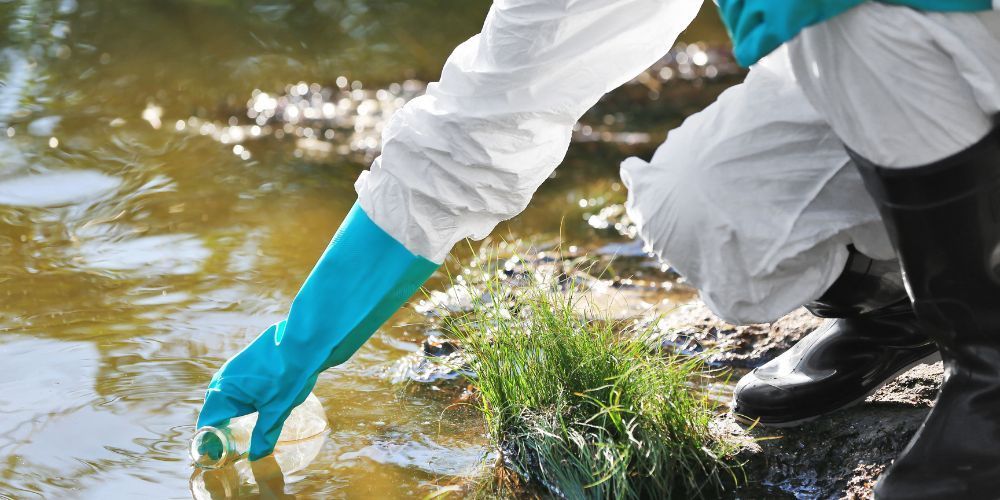
Urban Magnet Fishing Safety Tips
Safety should always be your top priority, especially in urban environments:
1. Know the Legal Status
Before dropping your magnet, research local regulations regarding magnet fishing. Some cities have restrictions or require permits, especially in historic areas or managed waterways. Check out our guide on magnet fishing laws by state for detailed information.
2. Be Cautious of Urban Hazards
City waterways present unique risks:
- Watch for broken glass and sharp metal edges
- Be aware of water pollution levels
- Avoid areas with strong currents or boat traffic
- Stay clear of electrical sources near water
- Be mindful of unstable banks or structures
3. Handle Finds Properly
Urban environments have complex histories, and some finds require special handling:
- If you find anything that resembles a weapon, contact local authorities immediately
- Historical artifacts might need to be reported depending on local regulations
- Suspicious containers (safes, lockboxes) should be opened carefully or with official assistance
4. Clean Up After Yourself
One of the greatest benefits of urban magnet fishing is helping clean our waterways. Always properly dispose of the trash you retrieve, recycle what you can, and handle hazardous materials appropriately.
For more guidance, check out our comprehensive magnet fishing safety tips.
Environmental Impact of Urban Magnet Fishing
Urban magnet fishing isn't just about finding cool stuff - it's also an environmental win-win! By removing metal objects from city waterways, you're:
- Reducing pollution: Metal items can leach harmful compounds into water
- Improving habitat: Removing debris creates better environments for aquatic life
- Preventing injuries: Sharp objects pose risks to swimmers and wildlife
- Beautifying waterways: Cleaner water is more appealing and usable for everyone
Many urban magnet fishers organize community cleanups that focus on heavily polluted areas. Consider joining or starting a local group dedicated to improving your city's waters through this hobby.
For more information on the environmental benefits, check out our article on the environmental impact of magnet fishing.
Preserving and Sharing Urban History
The historical items you recover might have significance beyond personal curiosity. Consider these options for your most interesting urban finds:
- Document everything: Take photos of your finds and record where and when you found them
- Research local history: Connect your discoveries to specific historical events or periods
- Contact historical societies: Local experts might provide context for unusual items
- Create displays: Share your cleaned and preserved finds through shadow boxes or displays
- Join online communities: Share photos and stories with fellow enthusiasts
Your urban magnet fishing discoveries contribute to the collective understanding of your city's past. That rusty key or old coin tells a story about the people who came before us and how they lived.
Getting Started This Weekend
- Ready to explore the hidden history in your city's waterways? Here's a quick checklist to get started:
- Research locations: Identify promising spots with historical significance
- Gather your gear: Invest in quality equipment for better results
- Check regulations: Verify you're legally allowed to magnet fish in your chosen location
- Bring a friend: Urban magnet fishing is safer and more fun with company
- Pack essentials: Water, snacks, first aid kit, and cleaning supplies
- Set expectations: Your first outing might yield more trash than treasure, but that's still a win for the environment!
Remember that patience and persistence are key. The most successful urban magnet fishers develop an eye for promising locations and return to productive spots repeatedly.
Urban magnet fishing offers a unique combination of treasure hunting, environmental cleanup, and historical discovery. As cities continue to evolve, the waterways that supported their growth hold fascinating secrets waiting to be uncovered.
Whether you're drawn to the excitement of finding valuable items, the satisfaction of environmental stewardship, or the connection to local history, urban magnet fishing has something to offer. So grab your gear, research your city's watery past, and see what treasures await beneath the surface!
Is magnet fishing legal in most cities?
Magnet fishing regulations vary significantly between cities and even between different waterways within the same city. Some urban areas welcome the activity for its environmental benefits, while others restrict it, especially in historic districts or protected waters. Always check local regulations before dropping your magnet, and consider obtaining written permission when necessary.
What's the best time of year for urban magnet fishing?
Urban magnet fishing can be done year-round in most climates, but spring and fall often provide ideal conditions. Summer offers comfortable temperatures but may bring increased water recreation that can interfere with your efforts. Winter magnet fishing in cities can yield excellent results due to less competition and clearer water, but requires proper cold-weather gear and safety precautions.
How do I clean and preserve rusty metal finds from urban waterways?
For iron and steel items, start with a gentle cleaning using a wire brush to remove loose rust and debris. For significant rust, a vinegar soak or commercial rust remover can help. Once cleaned, thoroughly dry the item and apply a protective coating like oil, wax, or clear lacquer. Different metals require different approaches, so research the specific material of your find before attempting conservation.
Author: Will Flaiz


